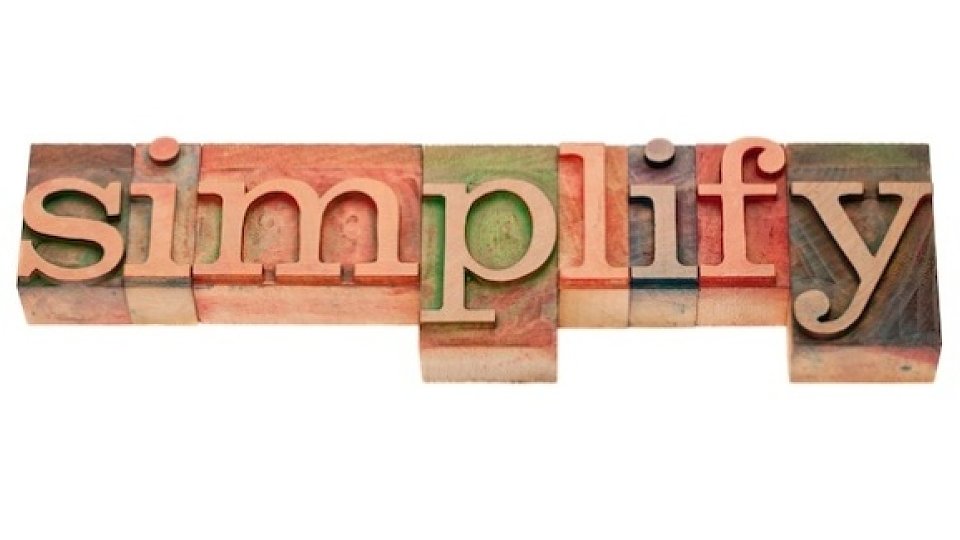Five Steps for Simplifying Your Life
This month, when many churches have a stewardship focus and as we approach Thanksgiving and the holidays, I thought it might be appropriate to draw from my little book, Enough: Discovering Joy Through Simplicity and Generosity. —Adam
~~~~~
I believe that contentment and simplicity go hand-in-hand. In my last post, I gave you Four Keys to Cultivating Contentment. Today, I’m writing about Five Steps for Simplifying Your Life.
Simplicity Says Less Is More
Simplicity says we do not need as much clutter in our lives. In fact, the more we pursue “more,” the more stressed out we become. After all, more stuff means more maintenance, which involves time, energy, and resources. The truth is that more stuff makes us less happy. There comes a point when we have enough stuff, and everything above and beyond that level only creates stress.
Many people are, in fact, embracing the idea of voluntary simplicity, choosing to take a step down in their lifestyle rather than constantly push upward. There are countless ways to do this. I’d like to offer five ideas that I have tried personally and found to be effective.
1. Set a goal of reducing your consumption, and choose to live below your means.
Set a tangible goal to reduce your own personal consumption and the production of waste in your life. For example, you might set a goal to reduce your trash consumption by just 10 percent. A simple way to do this is to use canvas bags when you go grocery shopping and to refuse any extra packaging.
There are countless other ways to reduce your consumption and live below your means. Do some research, share ideas with others, or have a brainstorming session with your family.
2. Before making a purchase, ask yourself, “Do I really need this?” and “Why do I want this?”
These questions will help you to determine the true motivation of your desired purchase. Is it a need, a self-esteem issue, or something else? You may find yourself wrestling with your true motive and decide that your reason for purchasing the item is not a good one.
3. Use something up before buying something new.
Though I realize it is not always possible to do this, generally it is. From household items to appliances to cars, wait until a replacement is truly necessary. Take good care of the things you buy and use them until they are empty, broken, or worn out. Buy things that are made to last, and, when buying things that have a short lifespan, spend your money wisely. Take better care of your possessions and remind yourself that you don’t always need to have new things.
4. Plan low-cost entertainment that enriches.
When it comes to choosing entertainment for your family or friends, plan things that are simple and cheap. You’ll be amazed at how much more pleasure you derive from low-cost, simple activities.
Personally, my favorite activity is to invite friends over to my house. Everyone brings something, we light a fire in the fireplace if the weather is cool, and we sit around and play cards. Usually the simple things are the most fun. For some reason, we think we have to spend money to have fun. That’s just not so. Simplify your entertainment choices.
5. Ask yourself, “Are there major changes that would allow me to simplify my life?”
Some of us are living beyond our means, and the stress is killing us. We have in our minds that we can’t possibly sell the house or the car. Yes, we can! I can’t tell you how much stress relief and joy can be found in selling a car and buying one you pay for in full.
Likewise, you might consider downsizing your home. Houses in America just keep getting bigger and bigger, yet with bigger houses come higher utility costs, more square feet to clean, higher property taxes and insurance, and more furniture to buy.
Asking yourself questions related to your home, possessions, job, and activities can help you to identify some significant changes that will simplify your life.
The Power of Self-Control
Simplifying your life requires the practice of self-control. It’s about forgoing instant gratification by stopping to think about the answers to three questions:
- What are the long-term consequences of this action?
- Is there a higher good or a better outcome if I use this resource of time, money, or energy in another way?
- Will this action honor God?
When we stop to ask these three questions, we begin to move beyond being enslaved by our impulses toward exercising self-control. Once we ask these questions, we often find strength and help for pursuing the right course by talking with others, enlisting their support, and praying for God’s help and strength in exercising self-control.
Then we begin to discover the incredible power of self-control—power that enables us to simplify our lives and experience true contentment.
This post is an excerpt from Enough.



Comments
blog comments powered by Disqus